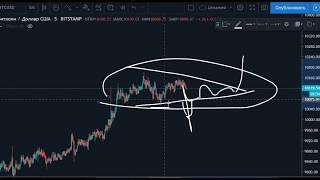➡️ Leverage OPM (Other People's Money): http://opm.cryptonewsalerts.net
Digital Asset Manager Grayscale says current investment patterns in Bitcoin mirror trends present in early 2016, when BTC kicked off an astronomical 4,400% rally to its all-time high in less than two years.
Phil Bonello, Grayscale’s director of research, reports that there is a growing number of investors holding on to their Bitcoin.
In Grayscale’s Holder vs. Speculator Index, the percentage of holder coins – BTC that have not moved in one to three years – is on the up and up. Meanwhile, the percentage of speculator coins – BTC that have moved in the last 90 days – is on a decline, much like in 2016.
According to Bonello, an increase in holder coins is a potential bullish indicator, while an increase in speculator coins looks bearish.
Bonello also notes that there has never been a higher level of Bitcoin held for more than one year.
“This metric indicates a strong conviction in Bitcoin by its current investor base. While this is a supply-side metric, it also demonstrates the demand for Bitcoin’s use case as a store of value – rather than trading, it appears investors are interested in holding Bitcoin despite its volatility…
This report is intended to help investors visualize why Bitcoin may be more important than ever; we explore Bitcoin’s value indicators, delineate its substantial supply/demand imbalance, and extrapolate how these factors may create a tailwind for Bitcoin’s adoption and price.
This analysis indicates that the current Bitcoin market structure parallels that of early 2016 before it began its historic bull run.”
The researcher does caution that significant off-chain activity may decrease the efficacy of these metrics.
Bitcoin’s price in January 2016 stood at about $434. In less than 24 months, the king crypto went on to skyrocket over 4,431%, en route to its all-time-high of $19,665, according to CoinGecko.
In other trending Bitcoin News today:
New Crypto Asset Could Be Next DeFi Unicorn to Explode, Says Bitcoin Analyst Nicholas Merten
DataDash founder and Bitcoin analyst Nicholas Merten says a new crypto asset is poised to become the next decentralized finance (DeFi) unicorn to erupt.
Merten says he’s betting big on Ampleforth (AMPL) as he believes the coin is relatively undervalued. The crypto strategist highlights that AMPL has already gone through close to an 80% correction in terms of market capitalization.
Merten says the pullback has put AMPL in a position to restart its bull cycle as the DeFi asset is flashing bullish signals.
Based on Merten’s chart, the coin’s market cap can explode over 430% in the coming months.
Ampleforth bills itself as an “adaptive base-money.” According to Merten, the number of AMPL in circulation adjusts based on demand.
“The balance of Ample can increase or decrease and it uses a very similar kind of mechanism some might be familiar with in regards to DAI… In this case, as price goes up, they increase the overall supply in the network and along with that as well, when you see a decrease in price, in this case, the overall supply decreases as well.
It’s supposed to provide [the] pressure of limiting the supply on the market and vice-versa. When price goes up, you have more coins in the market. People are actually, as they’re holding it, not only is price going up, maybe above the peg but along with that, they’re getting extra coins. In this case, there’s a pressure to sell.”
Digital Asset Manager Grayscale says current investment patterns in Bitcoin mirror trends present in early 2016, when BTC kicked off an astronomical 4,400% rally to its all-time high in less than two years.
Phil Bonello, Grayscale’s director of research, reports that there is a growing number of investors holding on to their Bitcoin.
In Grayscale’s Holder vs. Speculator Index, the percentage of holder coins – BTC that have not moved in one to three years – is on the up and up. Meanwhile, the percentage of speculator coins – BTC that have moved in the last 90 days – is on a decline, much like in 2016.
According to Bonello, an increase in holder coins is a potential bullish indicator, while an increase in speculator coins looks bearish.
Bonello also notes that there has never been a higher level of Bitcoin held for more than one year.
“This metric indicates a strong conviction in Bitcoin by its current investor base. While this is a supply-side metric, it also demonstrates the demand for Bitcoin’s use case as a store of value – rather than trading, it appears investors are interested in holding Bitcoin despite its volatility…
This report is intended to help investors visualize why Bitcoin may be more important than ever; we explore Bitcoin’s value indicators, delineate its substantial supply/demand imbalance, and extrapolate how these factors may create a tailwind for Bitcoin’s adoption and price.
This analysis indicates that the current Bitcoin market structure parallels that of early 2016 before it began its historic bull run.”
The researcher does caution that significant off-chain activity may decrease the efficacy of these metrics.
Bitcoin’s price in January 2016 stood at about $434. In less than 24 months, the king crypto went on to skyrocket over 4,431%, en route to its all-time-high of $19,665, according to CoinGecko.
In other trending Bitcoin News today:
New Crypto Asset Could Be Next DeFi Unicorn to Explode, Says Bitcoin Analyst Nicholas Merten
DataDash founder and Bitcoin analyst Nicholas Merten says a new crypto asset is poised to become the next decentralized finance (DeFi) unicorn to erupt.
Merten says he’s betting big on Ampleforth (AMPL) as he believes the coin is relatively undervalued. The crypto strategist highlights that AMPL has already gone through close to an 80% correction in terms of market capitalization.
Merten says the pullback has put AMPL in a position to restart its bull cycle as the DeFi asset is flashing bullish signals.
Based on Merten’s chart, the coin’s market cap can explode over 430% in the coming months.
Ampleforth bills itself as an “adaptive base-money.” According to Merten, the number of AMPL in circulation adjusts based on demand.
“The balance of Ample can increase or decrease and it uses a very similar kind of mechanism some might be familiar with in regards to DAI… In this case, as price goes up, they increase the overall supply in the network and along with that as well, when you see a decrease in price, in this case, the overall supply decreases as well.
It’s supposed to provide [the] pressure of limiting the supply on the market and vice-versa. When price goes up, you have more coins in the market. People are actually, as they’re holding it, not only is price going up, maybe above the peg but along with that, they’re getting extra coins. In this case, there’s a pressure to sell.”












Комментарии